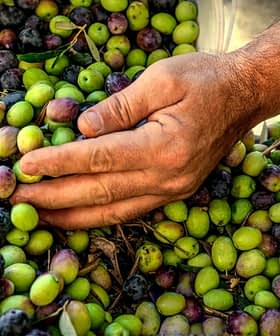New research suggests that consuming extra virgin olive oil rich in oleocanthal and oleacein can improve the health of people with obesity and prediabetes.
The study, published in Clinical Nutrition, found that consuming extra virgin olive oil rich in the biophenols for one month increased blood antioxidant defenses and decreased parameters associated with oxidative stress and inflammation, underlying conditions of both prediabetes and obesity.
In one month, we didn’t expect to see a change in body weight or a change in glycemia, but these are very good indicators of good clinical results for these types of patients (with obesity and prediabetes).
These benefits were not observed after the consumption of non-virgin olive oil – a mixture of refined olive oil and some virgin olive oil – over the same period.
Known as the APRIL (Aove in PRedIabetes) study, 91 participants from Málaga, Spain, aged 40 to 65, with obesity and prediabetes were divided into two groups.
See Also:Health NewsOne group of participants consumed the biophenol-rich extra virgin olive oil, while the other group consumed the non-virgin olive oil for 30 days. After a washout period of 15 days, each group received the other type of oil and consumed it for another 30 days. Both oils were consumed cooked and raw, but the exact amount of consumption was not measured.
“The main finding was the changes in oxidative stress,” Francisco-Javier Bermúdez-Silva, the study’s corresponding author and senior researcher at the Regional Hospital of Málaga, told Olive Oil Times. “We found a better antioxidant profile and detected a decrease in some enzymes that are relevant for oxidative stress.”
“Lipid peroxidation is a common feature of oxidative stress, and we found that these people had less oxidation of their lipids in the blood,” he added. “This is in line with all the previous basic research that had been done with these polyphenols.”
In the study, the researchers wrote that three key compounds that reduce inflammation increased after consuming the extra virgin olive oil, “suggesting a higher capacity to modulate systemic inflammation when compared to olive oil.”
“Oleocanthal and oleacein could be mediating this latter effect because their anti-inflammatory actions are well-documented,” the researchers added.
Obesity is a condition where there is low-grade inflammation and also oxidative stress. While there is still some disagreement, Bermúdez said there is a growing consensus that oxidative stress precedes the development of inflammation.
“This low-grade inflammation is related to insulin resistance,” he said. “Insulin resistance is related to failing the beta cells to produce enough insulin, and this leads to hyperglycemia and later to a state in which the body cannot control glucose levels in the blood.”
“The oxidative stress and inflammation are boosting all of these diseases,” Bermúdez added. “If you consume these compounds in extra virgin olive oil, we hypothesized that you can improve your condition and prevent the development of diabetes. To some extent, this is what we found.”
However, Bermúdez acknowledged several limitations to the study that should be improved with further research, including the smaller-than-expected sample size and relatively short time frame, which prevented researchers from following the clinical evolution of the patients.
“If we could follow these patients for longer, I guess that we would find less diabetes, less obesity and better general health,” he said.
See Also:Researchers Review Benefits of Mediterranean Diet to Reduce ObesityMitigating the impacts of obesity and prediabetes is a rising priority for researchers globally as rates of both diseases continue to climb with no signs of letting up.
According to a recent report published by the World Obesity Atlas, no country reported a decline in obesity prevalence in 2023. The international non-governmental organization estimates that more than 4 billion people will be overweight or obese by 2035, compared with 2.6 billion in 2020.
While prediabetes is notoriously hard to diagnose due to a dearth of physical symptoms, separate research from Johns Hopkins University concluded that the global burden of prediabetes is substantial and growing, with more than 1 billion people expected to be prediabetic by 2040.
Along with decreases in oxidative stress, researchers also observed a significant decrease in body weight of about one kilogram and body mass index after one month of consuming extra virgin olive oil but not non-virgin olive oil. They also observed a parallel improvement in fasting glucose.
However, the researchers added that they did not observe changes in insulin resistance, lipid profile, blood pressure or renal function.
“Taken together, these findings suggest that extra virgin olive oil was able to induce some clinical improvement in glucose handling, probably related with body weight decrease and amelioration of the inflammatory and oxidative status,” the researchers wrote.
“This was really a surprise for us,” Bermúdez added. “In one month, we didn’t expect to see a change in body weight or a change in glycemia, but these are very good indicators of good clinical results for these types of patients.”
Bermúdez added that he is working on a new study to determine how oleocanthal and oleacein consumption may affect people with diabetes.
“We have a new project in mind in which we plan to perform a similar study, but on people with diabetes,” he concluded. “Our study has shed some light on the prevention side of this compound. Now what we want to do is to perform a more therapeutic study by seeing what is happening in people who are already diabetic.”









